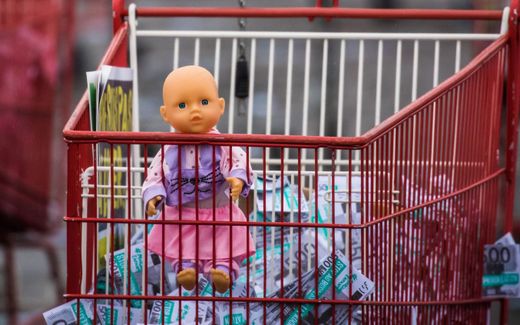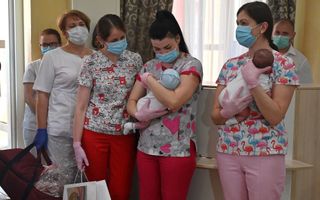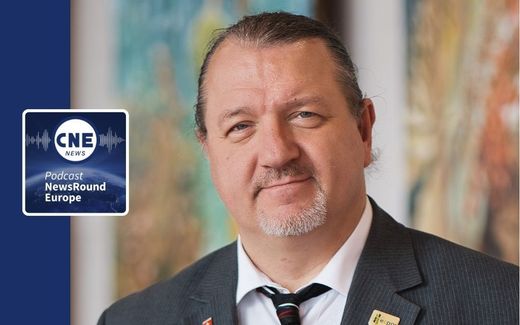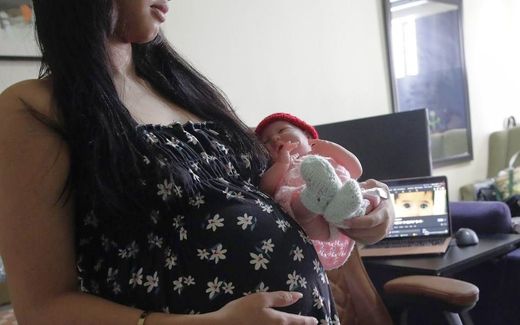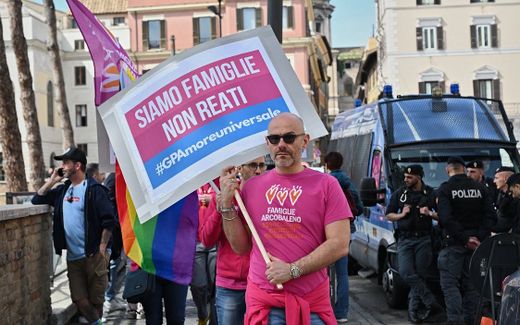Surrogacy changes babies into trade goods – and the world stays silent
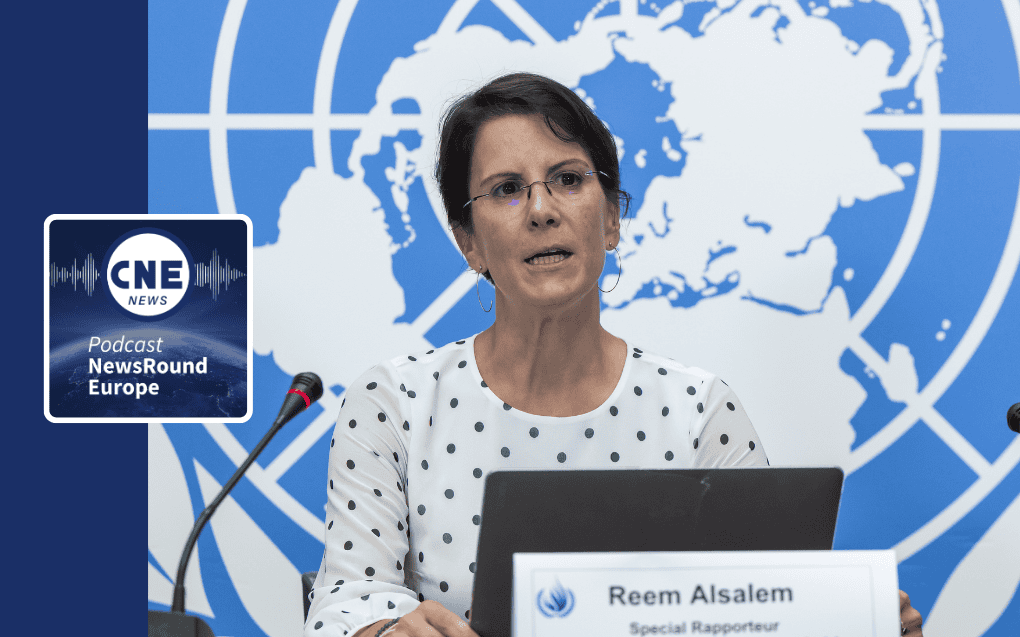
Photo EPA, Martial Trezzini, Canva
European Union
Most countries stay silent when babies are traded as goods, says a UN expert in the CNE podcast. Children are sold around the world as if they were commodities.
The UN Human Rights Commission appointed Reem Alsalem as special rapporteur on violence against women and girls. She has already written reports about the degrading character of prostitution and the danger in which female sports are at the moment.
This month, she presented a report on surrogacy in the UN General Assembly, requesting a worldwide ban on this practice.
For Reem Alsalem, the matter is simple: Surrogacy is turning the most intimate parts of a woman into a marketplace for money. She says in the CNE podcast that this should be forbidden.
Surrogacy is the practice in which other women can carry and deliver a child for you when you cannot do that yourself. Officially, this helps poor women earn money by carrying someone else’s child. But the UN expert shows another side: this makes it easy for child abusers.
As soon as the child is born, they are immediately separated from the biological mother, says Alsalem. All people in the world are quickly breastfed, but those kids are not. Why not? They should not bond with the woman they have lived with for nine months, although this is the child’s right. In the podcast, the UN expert speaks about the “immense harmful consequences” of this.
Some justify surrogacy by pointing to the Bible and the history of Abraham and Hagar. This interpretation is wrong, says Alsalem, and in the podcast, she explains why.
In the Western world, the legislation differs from country to country. Italy and Slovakia have banned the practice, and Ukraine and Georgia are the European hotspots.
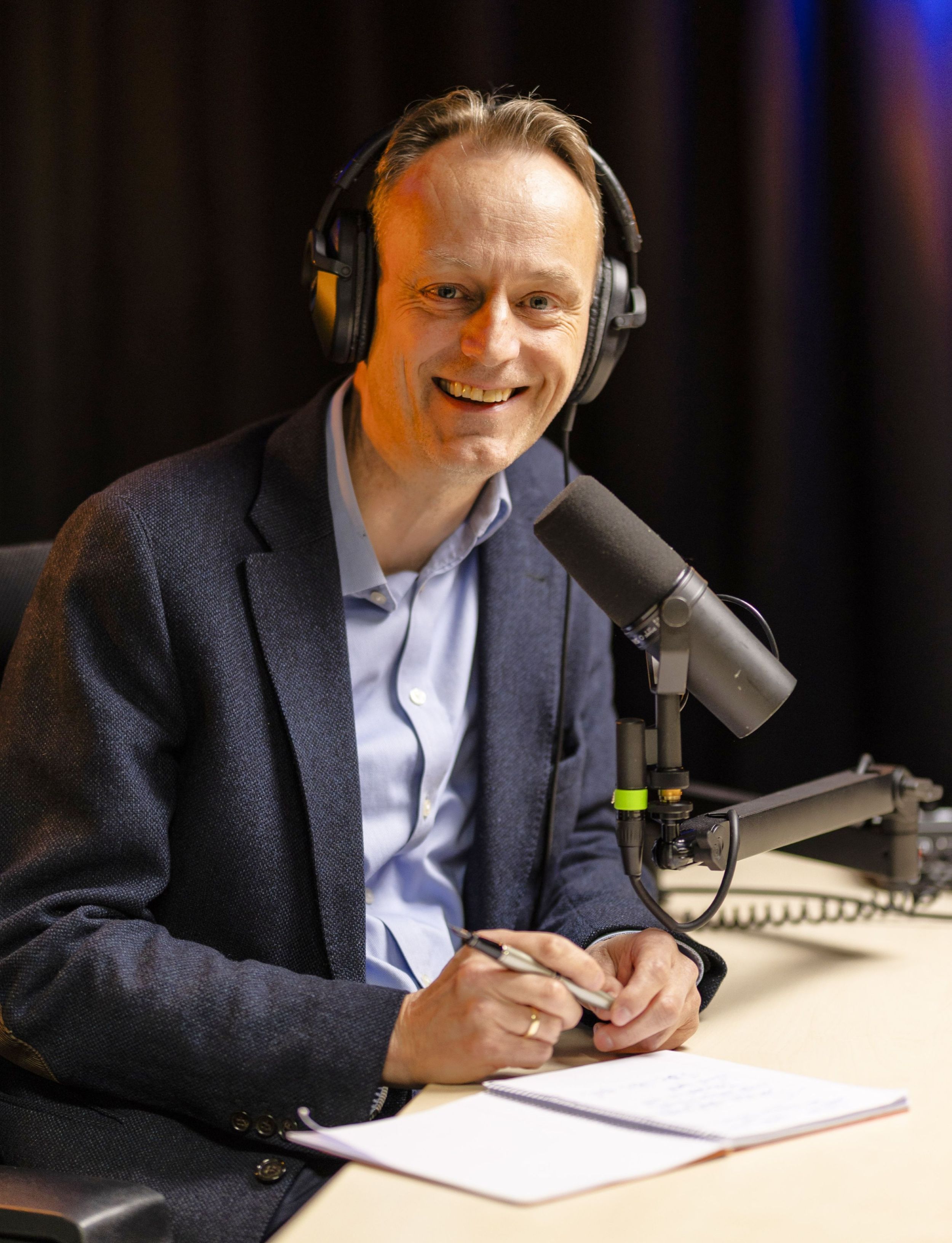
Reem Alsalem –herself a citizen of Jordan– is very outspoken. Surrogacy is exploiting female bodies. Does it make any difference that the women give consent? No, since legally, “you cannot consent to situations of exploitation or abuse”, she explains in the CNE podcast.
The circumstances in which those women carry such a child are degrading. “They can be forced to an abortion”, she tells CNE podcast host Evert van Vlastuin.
She is not impressed by the argument that surrogacy is a means to give offspring to childless people. “There is no right to have your own children as part of your reproductive rights.”
She rejects the comparison with adoption. In those cases, the intended parents are checked thoroughly. There are examples of children who ended up in the hands of criminals and people who (sexually) abused the child. “We have also seen that they often struggle with long-term questions of identity and origin.”
👉 Listen to the whole conversation.
Related Articles


